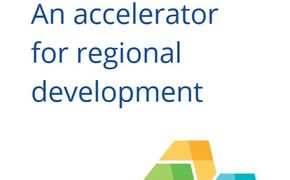On 19 March, the Policy Learning Platform organised a webinar together with the Thematic Experts for Low-carbon economy, on the topic of ‘Supporting e-mobility in European regions and cities ’. During the one and half hour discussion, we dived deeper into the topic of electric mobility, examining some of the barriers and enablers of uptake, and presenting the work of the EV Energy , PROMETEUS and SET-UP projects.
You can find the full replay of the webinar and the summarised key insights below.
VIDEO
The Thematic Experts Katharina Krell and Simon Hunkin opened the session with insights on the policy background including the challenges that cities and regions face in meeting carbon reduction targets and improving air quality. They also touched upon the barriers that are currently being faced including insufficient charging infrastructure and scepticism of electric vehicles amongst consumers, including range anxiety (concern about how long a battery charge will last).
The enablers for stimulating uptake of electric vehicles were also presented, including changing social norms and new approaches to urban transport, including vehicle sharing and smart mobility apps. The full presentation can be found here .
The floor was then opened up to several keynote speakers and good practice owners to share experiences and good examples of change:
Julie Chenadec and Hugo Niesing from the EV Energy project presented the challenges related to the roll-out of charging infrastructure in Europe, including fragmented and unstable policy support, and the need for large scale projects and long-term investments. They also presented the project’s conclusions and recommendations for policy-makers.
Hugo presented ‘Amsterdam’s demand-driven infrastructure ’ , which ensures that charging points are installed where needed, based on citizen demand. An individual can apply for a charging point to be installed near their home, and if there is not sufficient infrastructure in the area, a point will be installed within two months.
Find their full presentation here .
Gianluca Lentini and Carlos Ivan Riñones Mena from the PROMETEUS project followed with their presentation on incentives and campaigns for promoting electric mobility. Gianluca’s presentation explored the non-technological aspects of encouraging electric vehicle use, noting the importance of establishing a supportive regulatory framework, followed by charging infrastructure roll-out and then incentives and awareness raising activities such as involving the relevant audiences and educating young people.
Carlos followed up with the good practice on The Castilla y León Electromobility Guide
Discover Gianluca's presentation here and Carlos' presentation here .
The final presentations were given by Olly Frankland and Joaquin Villar Rodríguez from the SET-UP project, on electric vehicles and the electricity system. The introduction of electric vehicles will have a large impact on the electricity grid, which will have to be adapted to manage the increase in energy demand. Olly discussed ways that this can be managed, including different tariffs to encourage off-peak charging, and the use of vehicle-to-grid technologies which can be used to stabilise the grid.
Find the full presenation here .
Joaquin followed up with the good practice on Smart Grid Malaga
Find the presentation here .
The presentation ended with a short panel discussion in which the following poll was discussed:
Interested in what the keynote speakers had to share based on the answers? Take a look at the full replay of the webinar.
Image credit: Photo by Deva Darshan from Pexels 









